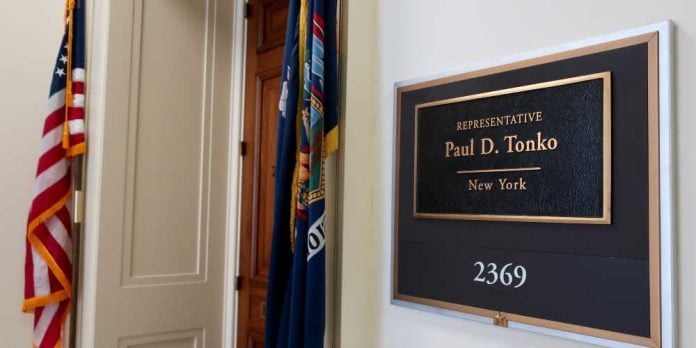It is rare to see a federal bill addressing sports betting, but one has been introduced into the House this year. Rep. Paul Tonko of New York introduced his legislation, the Betting on our Future Act. The legislation would put a ban on sportsbook advertising on “any medium of electronic communication”, which would include radio, television, and online ads.
When introducing the legislation, Tonko had this to say:
“Today, I’m introducing the Betting on our Future Act to take federal action to reel in the problematic rise of predatory advertising by sports gambling companies. Many of you may have noticed these incessant ads, which experts say are contributing to a rise in problem gambling. These aggressive advertising campaigns pose particular dangers, with promises of “risk-free” bets enticing vulnerable individuals to get hooked on their products. If these companies won’t do more to curb the surge in problem gambling, the federal government must step in.”
Rep. Paul Tonko
The bill would put oversight of this law under the Federal Communication Commission (FCC). A similar provision already exists related to cigarettes.
What is interesting about Tonko’s proposition is that it expressly targets sports betting, but not other forms of gambling like online casino, the lottery, brick and mortar casinos, or horse racing.
Tonko, a Democrat, has yet to file the legislation. In December, Sen. Richard Blumenthal (D-CT) penned an open letter to Caesars Entertainment CEO Tony Reeg demanding the company terminate its marketing relationships with Michigan State University and Louisiana State University.
Reeg and Caesars never responded, but Caesars did tell Massachusetts regulators the company does not plan to sign any future deals with colleges. However, the operator would not go so far as to state it would terminate its existing relationships.
Ohio and Massachusetts implemented restrictions on the use of the word “free” in advertising. There are also measures in place in several states limiting sportsbook advertisements in spaces that are not occupied by an audience that is predominantly over the age of 21.
The American Gaming Association’s Senior Vice President Chris Cylke provided the following statement to SBC Americas about the measure:
“The American Gaming Association (AGA) and our members adamantly oppose any legislation that seeks to ban or limit casino gaming advertising, including for legal sports betting.
Any such effort only serves to reduce awareness for legal options to the benefit of illegal, offshore operators and the detriment of consumers and communities. The proposed legislation would violate well-established free speech protections and undermine the expertise of more than 5,000 state and tribal gaming regulators across the country.
Responsibility is a foundation of the legal gaming industry and that includes with advertising. In fact, there’s never been more attention paid or resources invested in responsible gaming and problem gambling resources. This includes our proactive efforts establishing the Responsible Marketing Code for Sports Wagering, which mandates responsible gaming message inclusion and imposes restrictions on target audiences, outlets, and content.
Congress should instead focus its attention on combatting the predatory and pervasive offshore illegal market that offers no responsible gaming measures, age verification, or problem gambling resources.
We appreciate Representative Tonko’s interest and will continue to work to ensure a sustainable legal marketplace that puts consumer protections first.”














